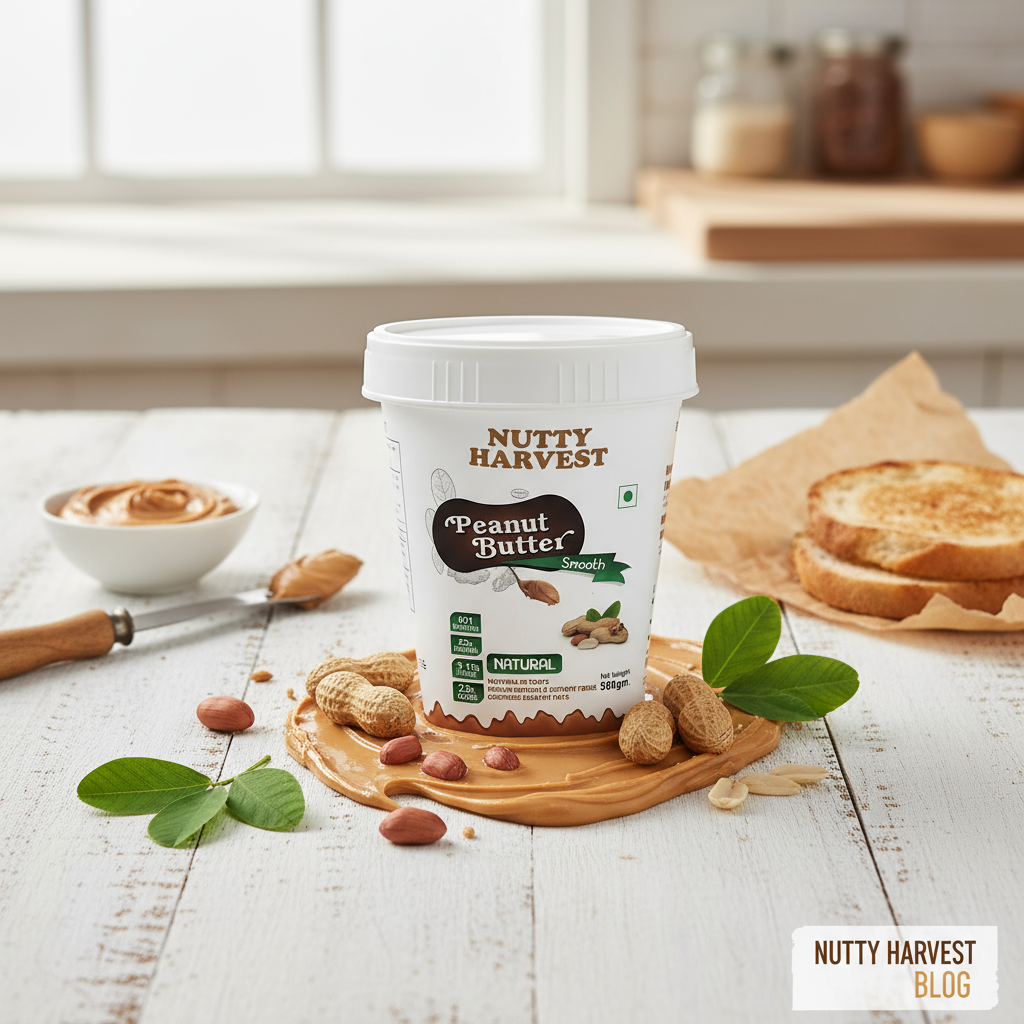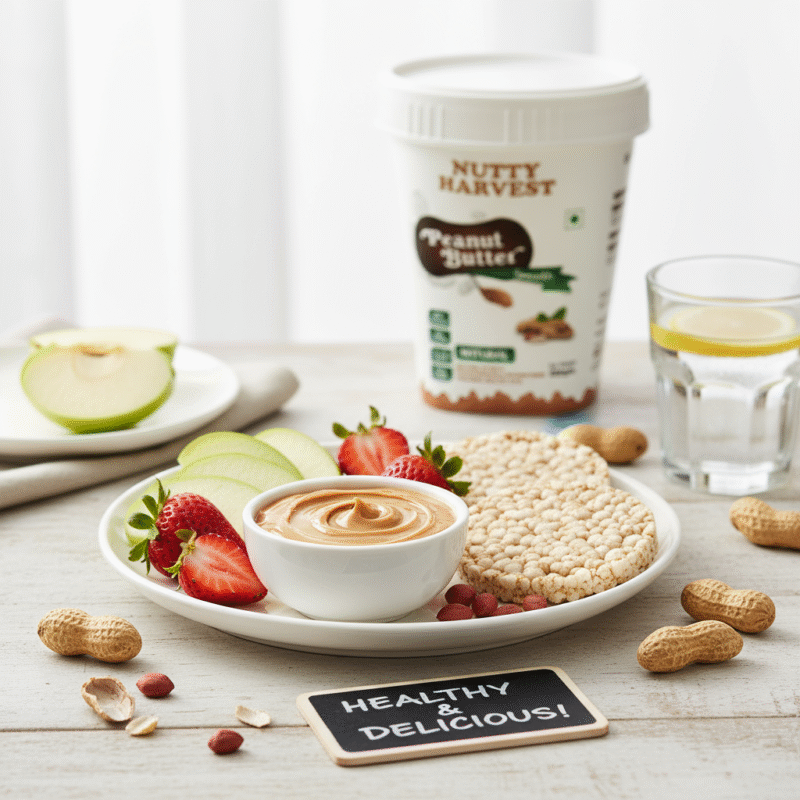Blog
10 Surprising Health Benefits of Peanut Butter

Introduction to Peanut Butter
Peanut butter has established itself as a beloved staple in many kitchens around the world, appealing to a wide range of palates and dietary preferences. The history of peanut butter dates back to the 19th century when it was created by grinding roasted peanuts into a paste. Its popularity surged in the United States during the early 20th century due to its affordability and nutritional benefits. Today, peanut butter is enjoyed by millions as a versatile ingredient that can be used in various dishes or spread on bread.
This popular food product comes in several varieties, including creamy, chunky, and natural options. Creamy peanut butter features a smooth texture, making it easy to spread, while chunky peanut butter contains small pieces of peanuts, adding a delightful crunch. Natural peanut butter, made from just peanuts and sometimes salt, has gained traction in recent years due to its minimal processing and the absence of additives and preservatives. These different types of peanut butter cater to individual preferences and dietary needs, contributing to its widespread use and enjoyment.
In terms of nutritional value, peanut butter is rich in protein, healthy fats, vitamins, and minerals. Each serving typically contains vital nutrients such as vitamin E, magnesium, and potassium. The healthy fats found in peanut butter are largely unsaturated fats, which can support heart health when consumed in moderation. Additionally, the protein content makes it a popular choice for individuals seeking to increase their protein intake, particularly among vegetarians and vegans. This combination of nutrients not only makes peanut butter a satisfying snack but also lays the foundation for exploring the numerous health benefits associated with its consumption.
Heart Health Booster
Peanut butter is often celebrated not only for its creamy texture and rich flavor but also for its impressive health benefits, particularly concerning heart health. At the core of these benefits is the composition of healthy fats found in peanut butter. This spread primarily contains monounsaturated fats, which are known for their role in reducing levels of low-density lipoprotein (LDL) cholesterol, commonly referred to as “bad” cholesterol. The consumption of foods rich in these healthy fats has been associated with lower cholesterol levels and a decreased risk of heart disease.
In addition to healthy fats, peanut butter is also packed with antioxidants that contribute significantly to its heart-protective properties. Antioxidants play a crucial role in combatting oxidative stress within the body, which is a contributing factor to many cardiovascular diseases. Moreover, nutrients such as magnesium and vitamin E found in peanut butter further bolster heart health. Magnesium helps maintain normal blood pressure, while vitamin E is essential for healthy blood circulation and may help prevent arterial damage.
Research indicates that regular consumption of peanut products can be linked to lower rates of heart disease and improved cardiovascular function. These findings highlight peanut butter’s status as a heart-friendly food option. The balance of healthy fats, vital nutrients, and antioxidants makes peanut butter an excellent addition to a heart-healthy diet. Whether enjoyed on whole-grain bread, blended into smoothies, or used as a dip for fruits and vegetables, peanut butter offers a tasty way to contribute to heart health while indulging in its rich flavor.
Weight Management Ally
Peanut butter, often perceived as a calorie-dense food, surprisingly plays a significant role in weight management. One of the primary reasons for this is its high content of healthy fats and proteins. These macronutrients contribute to a feeling of fullness, thereby curbing hunger between meals. When included in a balanced diet, peanut butter can help individuals moderate their food intake and prevent overeating, ultimately supporting weight loss efforts.
Research indicates that the satiating nature of protein and fats found in peanut butter not only helps in reducing appetite but also enhances the overall satisfaction of meals. A study published in the journal “Obesity” revealed that participants who consumed peanuts or peanut butter as part of their diet experienced less hunger and a greater sense of satisfaction compared to those who avoided these foods. This suggests that the unique composition of peanut butter, which includes monounsaturated fats, can be beneficial in managing one’s weight.
Moreover, moderate consumption of peanut butter does not negatively impact weight loss. In fact, integrating this nutrient-dense food into a diet may contribute to sustained weight management. For instance, a study in the “American Journal of Clinical Nutrition” found that subjects who included peanut butter in their diet were more successful at maintaining their weight loss over time compared to those who excluded it. The key lies in moderation, as portion control is essential given the calorie content peanuts possess.
In conclusion, by incorporating peanut butter into a balanced eating plan, individuals can take advantage of its satiating properties, which may aid in weight management and contribute to sustained efforts in achieving and maintaining a healthy weight.
Nutrient-Rich Superfood
Peanut butter is often celebrated not only for its rich flavor but also for its impressive nutritional profile. This spreadable delight is loaded with essential vitamins and minerals that contribute significantly to overall health. Among these nutrients, potassium plays a vital role in maintaining proper fluid balance, supporting muscle contractions, and regulating blood pressure. A diet rich in potassium is essential for preventing hypertension and promoting cardiovascular health.
Another crucial mineral found in peanut butter is magnesium, which is essential for energy production and contributes to over 300 enzymatic reactions in the body. Magnesium aids in muscle function, regulates blood sugar levels, and helps maintain a steady heart rhythm. Regularly incorporating peanut butter as part of a balanced diet can help individuals meet their magnesium needs, thereby supporting both physical performance and overall well-being.
B vitamins, including niacin, folate, and Vitamin E, are also abundant in peanut butter. Niacin is essential for energy metabolism, helping the body convert carbohydrates into fuel. Folate is particularly important for DNA synthesis and repair, making it critical for pregnant women and overall cellular health. Vitamin E, on the other hand, acts as a potent antioxidant, protecting cells from oxidative stress and contributing to immune function.
As a nutrient-dense superfood, peanut butter can seamlessly fit into various dietary regimens without overwhelming caloric intake. Its high protein and healthy fat content promote satiety, making it an excellent choice for those seeking weight management strategies. By offering a variety of essential nutrients, peanut butter should indeed be regarded as a valuable addition to health-conscious diets, catering to different dietary needs while delivering excellent taste.

